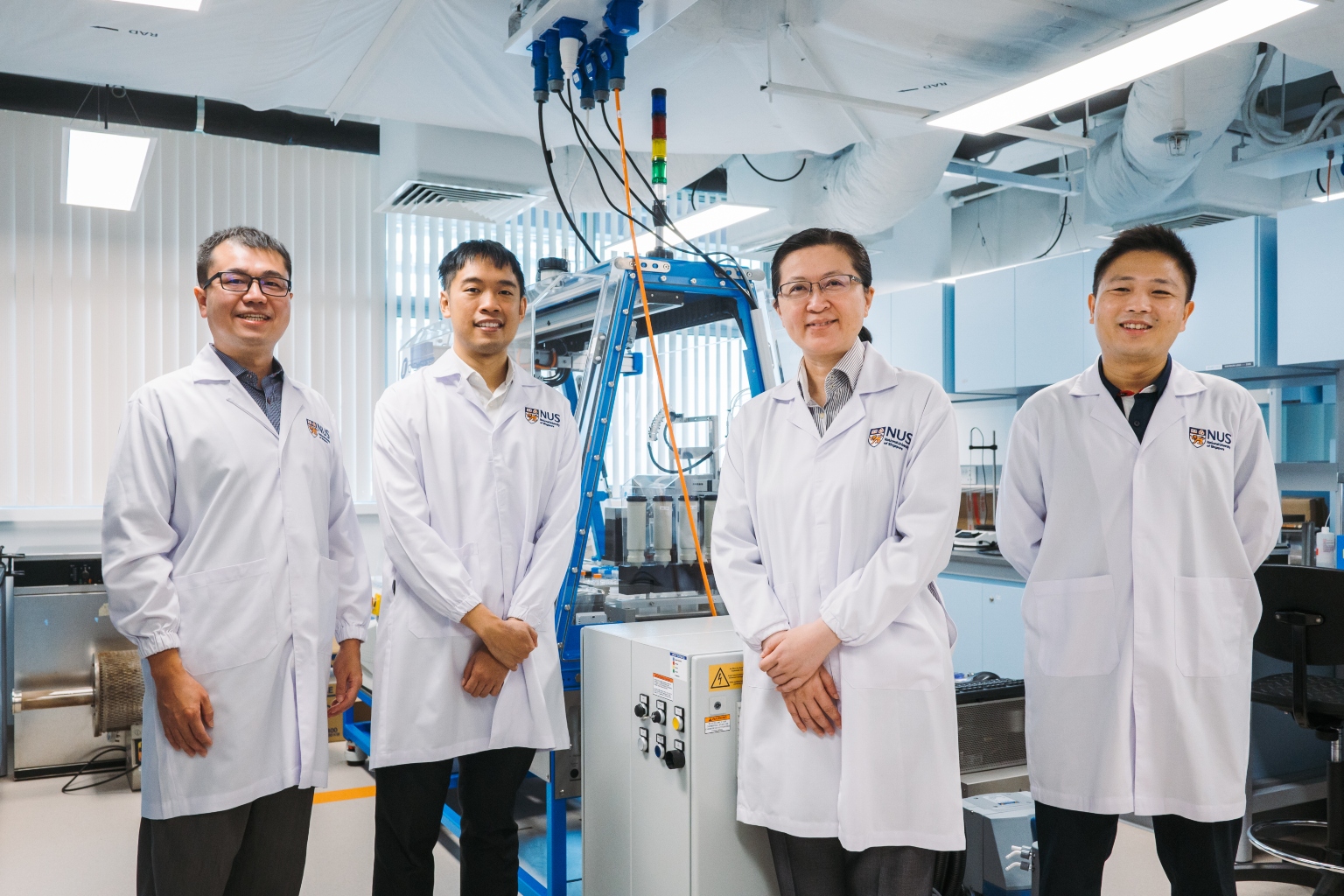Singapore eyes green hydrogen as energy source with $25m institute
Sign up now: Get ST's newsletters delivered to your inbox

Professor Liu Bin (second from right), Director of the NUS Centre for Hydrogen Innovations, with principal investigators (from left) Associate Professor Yan Ning, Assistant Professor Lum Yanwei and Assistant Professor Wang Lei.
PHOTO: NUS
SINGAPORE - A new $25 million research institute aimed at making green hydrogen a commercially viable clean fuel to power Singapore's needs was launched last Friday (July 1) as the Republic moves to decarbonise its energy sector.
The National University of Singapore's (NUS) Centre for Hydrogen Innovations will help create breakthrough technologies that will make hydrogen a viable green energy source.
Professor Ho Teck Hua, NUS Senior Deputy President and Provost, said that both the new centre as well as NUS' Green Energy Programme - which focuses on carbon capture and utilisation technologies - are part of the university's strategy of coming up with innovative ways to reduce Singapore's reliance on fossil fuels.
The centre, the first of its kind in South-east Asia, has received a total investment of $25 million, of which $15 million is an endowment gift from government investment firm Temasek.
Led by Professor Liu Bin, who also established the NUS Green Energy Programme, the centre will be "taking a holistic approach" in tackling both the technological and infrastructural challenges of creating a competitive hydrogen economy.
Low carbon hydrogen imports have also been identified as a viable way forward in bringing the power sector - which now produces 40 per cent of the country's emissions - to net zero by 2050, according to the Energy 2050 Committee report, which was released in March.
In the first phase, the centre will primarily focus on hydrogen carriers for storage and transport - a fairly nascent area of research - as well as the global supply chain for hydrogen.
"While hydrogen can be imported through pipelines, this can only be done for short distances from countries like Malaysia. Liquefied hydrogen is very energy-intensive and would require investments in new infrastructure," Prof Liu told The Straits Times.
Another method would be to convert hydrogen into a liquid chemical carrier that can be transported at room temperature using existing infrastructure. But more research is needed to extract hydrogen from its carrier.
Aside from looking into transporting hydrogen, the centre is also gearing up to produce hydrogen locally, to safeguard Singapore's energy security in the event of supply chain disruptions.
Hydrogen can be produced through the electrolysis of water, separating it into hydrogen and oxygen, as well as methane pyrolysis - a process which splits natural gas into hydrogen and solid carbon.
But in order to be considered a green fuel, both processes must be powered by renewable energy such as solar.
To accelerate the use of green hydrogen as a fuel for sectors such as transport and electricity, the centre will be working closely with industrial players in these areas.
It will also create a talent pipeline such that workers can contribute to different components of the hydrogen economy.
These training programmes range from degree programmes to short courses which target undergraduates to adult learners and industry leaders.
To enable the safe adoption of these novel hydrogen technologies, the centre will collaborate with NUS to work with policymakers and national agencies to come up with safety regulations, risk assessments and policies targeting these issues.
So far, nine projects in hydrogen research will be funded by the centre, each receiving up to $250,000.
Temasek's head of Strategic Development Russell Tham said it is pleased to support the centre to accelerate its research and development efforts and develop talent for the hydrogen economy.
A board comprising leaders from the academic, government and corporate sectors in Singapore and overseas will be co-chaired by Prof Ho and Mr Tham to provide strategic direction and stewardship for the new centre.
Dr Victor Nian, chief executive of the Centre for Strategic Energy and Resources, an independent think-tank which is headquartered in Singapore, said that while the NUS centre is striving to make an impact in accelerating the creation of a global hydrogen economy, industries will also have to build strategic partnerships along the value chain, especially for building an ecosystem from hydrogen supply to demand among countries.
The Government would also have a role in accelerating the adoption of hydrogen for downstream applications, he added.



